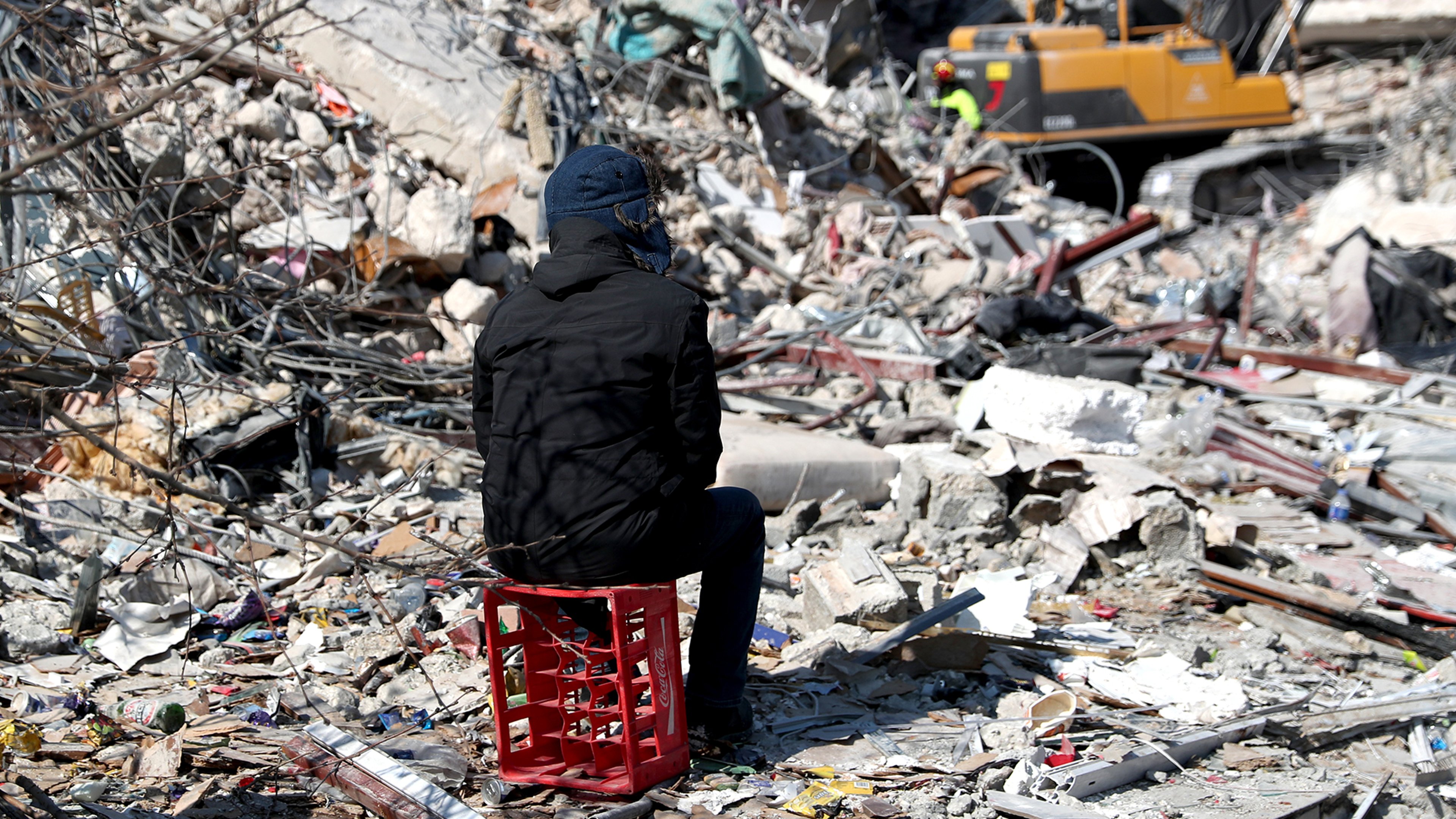Blog
Finding Comfort in Allah's Mercy after a Tragedy: How to respond to the earthquake in Türkiye and Syria | Blog
In the aftermath of extreme natural disasters, it's normal to feel mentally and physically helpless. How can we find Allah's mercy in the devastation? How should we respond according do the Quran and Sunnah?
Authored by
Published: February 10, 2023 •Rajab 19, 1444
Updated: October 20, 2023 •Rabi al-Thani 5, 1445
Read time: 7 min
As with all matters in our deen, the answers to such questions should be sought in the balanced guidance of the Qur’an and the Prophetic Sunnah. Allah, in His awe-inspiring power, sends such calamities for a reason—and one can find solace in pondering those reasons. But before such reflection, we should also recognize the Prophetic imperative to act immediately in the wake of great tragedies, no matter who is afflicted by them. The Prophet, in a hadith in Bukhari and Muslim, even praised people who took care of animals suffering from hunger or thirst. And as every believer knows:
“Whoever saves a life, it is as though they have saved all humanity.” [ Qur’an, 5:32 ]
1. Donate to relief efforts now!
More like this
Prophetic Solutions for Doom Spiraling: Cultivating Hope in a Cycle of Negativity | Blog
Mary in the Qur’an: The Power of Faith in the Face of Pain and Scorn | Blog
When Scrolling Breeds Despair: A Prophetic Cure to Comparison Culture | Blog
2. Pray for those suffering
3. Reflect on Allah’s mercy and might
This man exemplified the Prophetic response to the death of all but one of his children within his lifetime. As reported in Bukhari and Muslim, after the death of his infant son Ibrahim, the Prophet ﷺ wept and expressed deep sorrow, manifesting his merciful character, while only uttering words that would please his Lord.
Such events can thus bring out the best in us and remind us that even in calamity, one can remain focused on the prize—Allah’s pleasure with our actions.
Ultimately, we can recognize that calamities are part of the creation that He creates and sustains in every moment around us. No earth will quake without His permission, just as no leaf will fall without His knowledge [ Qur’an, 6:59 ].
4. Suffering in this world is not in vain
“My ummah is an ummah shown mercy [by Allah]. Its adhaab is not in the Hereafter. Its adhaab is in this world: trials, earthquakes and being killed.”
5. Take the reminder and turn to Allah
“O you who believe, you are the ones in desperate need of Allah, and Allah is the only One Who is self-sufficient, free of need, worthy of all praise” [ Qur’an, 35:15 ]
“Believers, respond to God and His Messenger when he calls you to that which gives you life. Know that God comes between a man and his heart, and that you will be gathered to Him.” [ Qur’an, 8:24 ]
Disclaimer: The views, opinions, findings, and conclusions expressed in these papers and articles are strictly those of the authors. Furthermore, Yaqeen does not endorse any of the personal views of the authors on any platform. Our team is diverse on all fronts, allowing for constant, enriching dialogue that helps us produce high-quality research.
Want to appear on Yaqeen?
